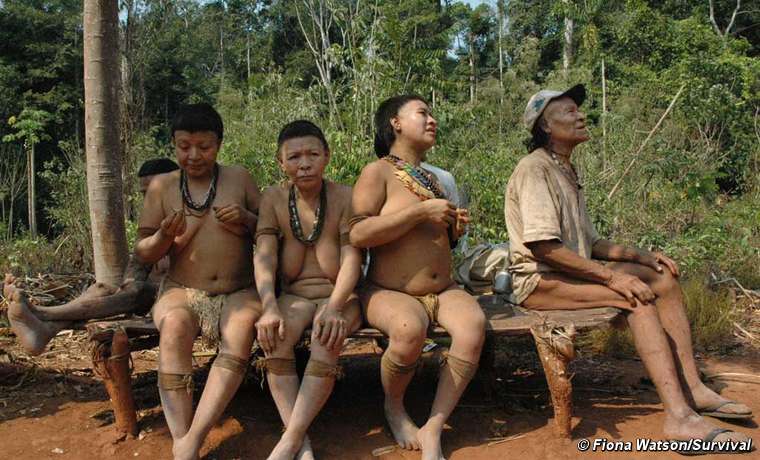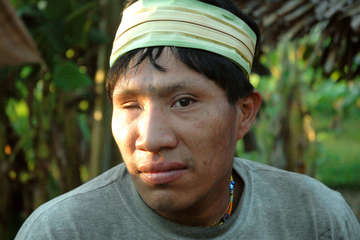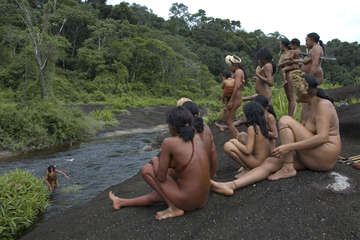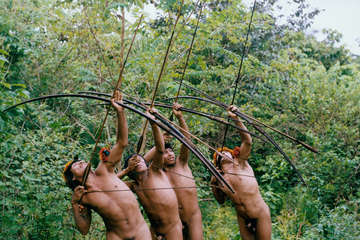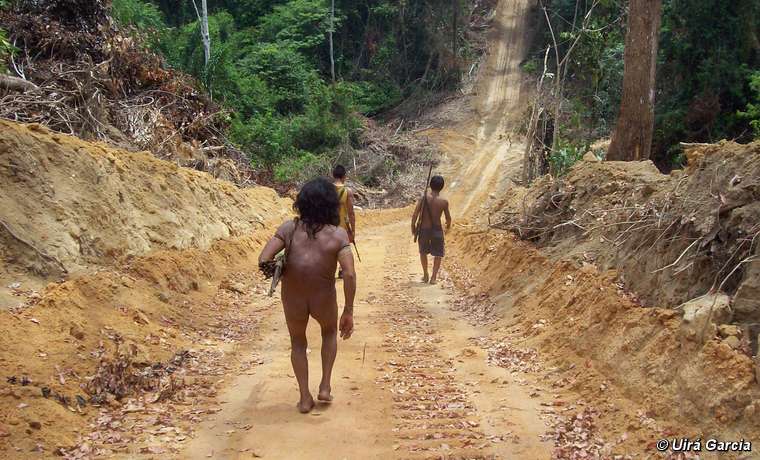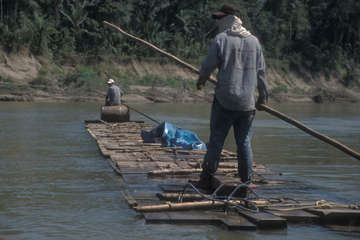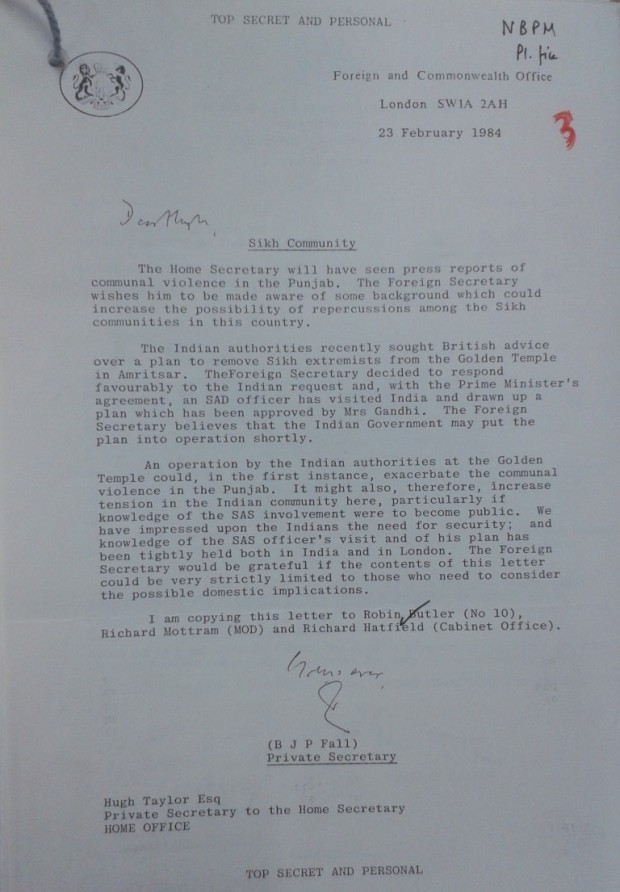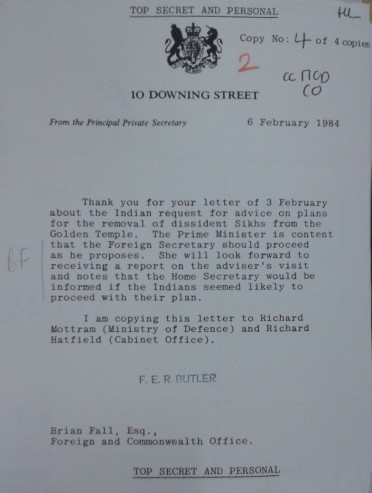The despicable treatment of Devyani Khobragade, Indian Deputy Consul
general in New York, should be another wake up call for India and
talk-circuit liberals. If you do not have the means to project power
effectively, the world will walk all over you. It is good that India is
in a mood to retaliate, but it is important for us to persist with it
long after this is over. Moreover, we should equip ourselves with more
laws to target foreign countries that use their domestic laws to
blackmail or humiliate us. We should not take such affronts lying down
anymore.
In a limited sense, the transgressions of US minimum wages law by Khobragade will draw the usual Indian liberal nonsense: if we are in contravention of their law, we are the guilty party. Worse, some of us will also express sneaking admiration for the US's ability to enforce its own law, as opposed to our own inability - or systemic unwillingness - to enforce ours. Not only is this a naïve view, but bull. Hear what Khobragade had to say about her arrest, and judge for yourself if this is the right way to deal with a brech of minimum wages law. The Indian Express, quoting from her email to colleagues, has this Indian Foreign Service (IFS) officer saying this about her horrifying experience. “I must admit that I broke down many times as the indignities of repeated handcuffing, stripping and cavity searches, swabbing, hold up with common criminals and drug addicts were all being imposed upon me despite my incessant assertions of immunity.”
Our general assumption that the US law enforcers are merely doing their duty is rubbish. If alleged violation of US visa laws by Infosys can be settled with a fine, why couldn't the US have done so for Khobragade? Or is a woman diplomat fair game for US law enforcers? Indians are the most gullible goops in the world when it comes to discerning the difference between an honest effort to implement the law and using laws to project power and blackmail other countries. The American government is the most sophisticated legally illegal enterprise in the world when it comes to dealing with people from other countries. And Americans are one of the most sophisticated bigots in the world.
There are two reasons why we are so bad at recognising this: one is because we are very poor readers of real intent as we have not studied the west on our terms.
The second reason is even worse: we are the most compromised individuals when it comes to America. Every bureaucrat and politician and media hack sends his or her children to America or Europe to study, or is given high paying jobs in US multinationals. Thus, many of them would have received favours from the American establishment. So when it comes to standing up to America to defend our own interests, our worthies are unable to take a strong view on what is right for our country.
There is also a third reason: we are simply too self-absorbed and willing to forget and move on in the pursuit of narrow, short-term personal interest. The Americans will go to the ends of the earth to pursue Osama bin Laden or even their own Islamic terrorists for 10 years. We will forget Hafiz Saeed five years after 26/11. The Americans will not let us forget 2002 – not because they care about the Muslims they themselves ostracise in their own country, but because it is a useful stick to hold over someone who could be our next PM.
There is also another counter-intuitive reason why we are unable to see American bad faith: America does not use its laws to harass its own citizens, while we do the exact opposite. Thus we are willing to stretch the argument and believe that America must be using its laws fairly against the rest of the world. What absolute rot. The truth is American agencies have sophisticated ways of using their laws against foreigners to defend their interests. Their laws may oppose torture, so they will use Guantanamo Bay to for torture and waterboarding against prisoners. President Obama vowed to shut it down, but Guantanamo is still around. Even if it is shut, they will ask allies in brutal Africa or Thailand to do their dirty work.
Americans are forbidden by their own laws to indulge is assassinations abroad, but Obama has converted the CIA into a killing machine. Two years ago, they killed one of their own nationals – Anwar al-Awlaki, for example - because of his alleged terror links (not proven in a court of law). The Americans regularly use drones against civilians in Afghanistan and Pakistan and South Yemen on the plea that one among them may be a terrorist. To have plausible deniability, they even use private surveillance and security agencies as surrogate CIA agents. (Read Mark Mazzetti's eyeopening book, The Way of the Knife, to get a glimpse into this). Their freedom of religion laws will be used against the one country which actually allows everyone to practice and propagate his religion (India), but top allies like Saudi Arabia will get a free pass on this law. America will swear by free markets to lobby for Wal-mart, but will not recognise freedom for labour movement. Is free enterprise only about the movement of capital and not other factors of production? The Americans practice sophisticated racism. Thus they will use a Preet Bharara to target Khobragade (or Rajat Gupta or Raj Rajaratnam) so that it looks like Indian-Americans are implementing the law, and hence not racist, but the same laws will not be used to humiliate the Hispanics or Afro-Americans or the Saudis or American icons like the late Steve Jobs or to convict Richard Nixon or Bill Clinton.
Americans, despite paying very little of the UN bill, will not allow US soldiers to serve under generals of another nation, and Americans accused of war crimes cannot be tried anywhere else but in holier-than-thou US of A. I can go on and on, but we must focus on the one issue I still left unaddressed: what do the Americans gain by targeting Khobragade? Or, for that matter, by denying Narendra Modi a visa, especially since Americans have always extolled business friendly politicians everywhere? Modi ought to have been their natural ally? In the Khobragade case, my guess is that the US government and arrogant Preet Bharara miscalculated on how India will respond. They thought there will be the usual diplomatic muttering under the breath and then business as usual. Moreover, the US can always count on compromised bureaucrats and corrupt politicians to abandon their own diplomat. But two things conspired to stiffen Indian spines. One, the IFS officers' body is not going to see one of their own humiliated thus. And two, Narendra Modi is another reason. The UPA has hanged Afzal Guru and Ajmal Kasab to undercut Modi’s hard appeal, and Modi is due in Mumbai on 22 December. Khobragade is Mumbai's child and her father was a city bureaucrat before retirement. One can imagine how Modi would have damned the UPA for cowardice when he addresses Mumbai crowds. Which brings me to the last motive: why deny Modi a visa if you know he could well be the next PM? The US would never do this to a Saudi King, a Pakistani General or a Vladimir Putin or a Mossad agent, or a Chinese official, no matter what kind of atrocities they may have committed in their own countries.
The answer is simple: the earlier visa denial was driven by the need to pander to the domestic evangelical organisations which were baying for Modi’s blood. Evangelicals believe that Modi may act against their conversions agenda. The second reason is future leverage. The Americans want to use the visa as a bargaining chip in case Modi is the next PM, even though they hope he won’t become the PM. They fear that he will play hardball – exactly what the US does always. The US fears its own kind more than weak-kneed Indians politicians. It is critical that India should not close the chapter on the Khobragade affair for a few conciliatory noises. We have to bare our fangs and show some muscle. The chances are the US will do a deal and extract concessions from the UPA government to let Khobragade off the hook. And the Indian side will bow to this blackmail and claim their hard stance has paid off and declare victory. I hope this story does not play out. There are times when we have to show we are Indians, and this is one of those times. The only right response to the Khobragade insult is to treat Americans the same way they treat our kind: catch hold of a technical violator of Indian law, do some handcuffing and "cavity searches" on some of the men arrested, and then bargain about Khobragade. At the very least, we should target Preet Bharara for humiliating an Indian diplomat and make sure he never enters this country again.
As we move away from a monocivilisational world of Western domination of world history to a multicivilisational world, our minds must begin retooling themselves. We have to develop the capability of carrying competing, if not contradictory, narratives and understand that both may be correct, even if they contradict each other. We will have to learn to shed black and white judgements in favour of multi-hued, complex assessments.
A perfect example of equally correct but contradictory narratives is provided by the case of Devyani Khobragade, an Indian consular officer arrested by US authorities on December 12. In American eyes, it is a clear, black and white case. She had signed an agreement to pay her domestic help, Sangeeta Richard, $9.75 an hour. Instead she paid her only $3.31 an hour. As Khobragade had violated US laws, it was both legal and legitimate for the US attorney, Preet Bharara, to have her arrested and charged. Reflecting mainstream American opinion, The New York Times editorialised that “India’s overwrought reaction to the arrest of one of its diplomats in the United States is unworthy of a democratic government”.
This American narrative has a point. Khobragade has her rights. So does Sangeeta Richard, the employee. Richard was clearly the underdog in this exercise (even though by being employed in America, her wages increased 25-fold). Indeed, the traditional American concern for the underdog is one of the strongest aspects of American society. So is the egalitarian spirit of American society, which has gone much further than any other human society in removing and eradicating all traces of feudal culture. In my first book on America and the world (entitled Beyond the Age of Innocence), I praised the American doormen who would look me in the eyes and treat an ambassador like me as an equal, and not act in a submissive manner like any Asian doorman would.
Shekhar Gupta has waxed eloquent on the egalitarian virtues of American society. He noted that barely within a year of leaving office as deputy secretary of state, Strobe Talbott had to scramble for a taxi in New Delhi like any other commoner. More amusingly, he told the story of a famous Indian film actress who refused to marry and settle down in America because Indians in America refused to allow her to cut a supermarket queue, even after they had recognised her. The good news for our world is that this American egalitarian spirit is gradually infecting other societies, including Asian societies, and therefore making them less feudal.
Ironically, however, even as this American spirit of egalitarianism infects the world, American government officials continue to insist on feudal-type privileges while serving in other countries. It is normal for American diplomats to receive diplomatic immunity. Rather abnormally, the American government expects that even its non-diplomats should receive immunity. In some cases, they have literally, not metaphorically, gotten away with murder. Raymond Davis, a CIA contractor, was whisked away from the Pakistani judicial system after shooting and killing two Pakistani citizens. In the ancient days, only feudal lords stood above the laws of the land. Today, American government employees also enjoy feudal immunities overseas (even though most of them are law-abiding citizens while working overseas).
Sadly, few Americans are aware that the American government practices double standards in the application of laws. It allows no foreign government officials, including a powerful person like Dominique Strauss-Kahn, then head of the International Monetary Fund, any immunity from American laws. Yet it expects its government officials to be — in theory and in practice — immune from other countries’ legal courts. Whenever any US government official faces the threat of prosecution in a foreign legal court, he or she is quietly whisked away, as few governments can withstand bilateral pressure from the US government. Since many Americans are puzzled by the Indian outrage, they should know that Indian society was deeply shocked that a senior Indian official was subject to a strip search. This created a deep sense of cultural outrage, similar to the outrage that Americans would feel if a black citizen is called a “nigger” today. Any Westerner who cannot understand this analogy will be unable to absorb a multi-civilisational perspective.
All governments in the world are aware of this schizophrenic attitude of the US government (which, I must stress, reflects the views of the US Congress). On one hand, the US government is second to none in defending the rule of law at home. On the other hand, the US government is second to none in defending immunity for its officials from all foreign legal courts and judicial procedures.
When the International Criminal Court (ICC) Statute came into force on July 1, 2002, the US government undertook a massive campaign to get over a hundred foreign governments to sign what have been called “article 98 agreements” or “bilateral immunity agreements (BIAs)”. These agreements stipulate that these countries would not send US citizens to the ICC. Similarly, the US Congress has developed a long-standing practice of extra-territorial application of its domestic laws on other countries and their citizens. But it is extremely reluctant to allow the extra-territorial application of other countries’ laws on its own territory.
This schizophrenic attitude of the US government explains why virtually every other government in the world was quietly cheering on the Indian government as it insisted on total reciprocity in the treatment of Indian and American officials. Few governments in the world have the geopolitical heft or the moral legitimacy to look the American government in the eye and demand such absolute reciprocity. India does. Hence, even India’s biggest detractor in the world, Pakistan, is quietly cheering on India. They hoped that India would finally succeed in persuading the US government to accept a level playing field in dealing with other countries.
The Indian government’s success in persuading the American government to allow Khobragade to return home and not face charges in an American court will therefore be cheered all around the world. Most countries realise that they would not have had the weight to shift the US government. India is one of the few who could do so. And in doing so, India has also enhanced the rights and standing of other foreign diplomats on American territory.
Finally, and perhaps most importantly, India may have actually done America a favour. Why? The former American president, Bill Clinton, has wisely counselled his fellow citizens to prepare for a world “that we would like to live in when we’re no longer the military political economic superpower in the world”. His wise advice indicates how the two contradicting narratives can come together: Americans should work hard to create binding international law regimes that would apply equally to American and non-American officials and citizens. In the final analysis, a level playing field in this area would demonstrate that the American egalitarian spirit is influencing international law too.
In a limited sense, the transgressions of US minimum wages law by Khobragade will draw the usual Indian liberal nonsense: if we are in contravention of their law, we are the guilty party. Worse, some of us will also express sneaking admiration for the US's ability to enforce its own law, as opposed to our own inability - or systemic unwillingness - to enforce ours. Not only is this a naïve view, but bull. Hear what Khobragade had to say about her arrest, and judge for yourself if this is the right way to deal with a brech of minimum wages law. The Indian Express, quoting from her email to colleagues, has this Indian Foreign Service (IFS) officer saying this about her horrifying experience. “I must admit that I broke down many times as the indignities of repeated handcuffing, stripping and cavity searches, swabbing, hold up with common criminals and drug addicts were all being imposed upon me despite my incessant assertions of immunity.”
Our general assumption that the US law enforcers are merely doing their duty is rubbish. If alleged violation of US visa laws by Infosys can be settled with a fine, why couldn't the US have done so for Khobragade? Or is a woman diplomat fair game for US law enforcers? Indians are the most gullible goops in the world when it comes to discerning the difference between an honest effort to implement the law and using laws to project power and blackmail other countries. The American government is the most sophisticated legally illegal enterprise in the world when it comes to dealing with people from other countries. And Americans are one of the most sophisticated bigots in the world.
There are two reasons why we are so bad at recognising this: one is because we are very poor readers of real intent as we have not studied the west on our terms.
The second reason is even worse: we are the most compromised individuals when it comes to America. Every bureaucrat and politician and media hack sends his or her children to America or Europe to study, or is given high paying jobs in US multinationals. Thus, many of them would have received favours from the American establishment. So when it comes to standing up to America to defend our own interests, our worthies are unable to take a strong view on what is right for our country.
There is also a third reason: we are simply too self-absorbed and willing to forget and move on in the pursuit of narrow, short-term personal interest. The Americans will go to the ends of the earth to pursue Osama bin Laden or even their own Islamic terrorists for 10 years. We will forget Hafiz Saeed five years after 26/11. The Americans will not let us forget 2002 – not because they care about the Muslims they themselves ostracise in their own country, but because it is a useful stick to hold over someone who could be our next PM.
There is also another counter-intuitive reason why we are unable to see American bad faith: America does not use its laws to harass its own citizens, while we do the exact opposite. Thus we are willing to stretch the argument and believe that America must be using its laws fairly against the rest of the world. What absolute rot. The truth is American agencies have sophisticated ways of using their laws against foreigners to defend their interests. Their laws may oppose torture, so they will use Guantanamo Bay to for torture and waterboarding against prisoners. President Obama vowed to shut it down, but Guantanamo is still around. Even if it is shut, they will ask allies in brutal Africa or Thailand to do their dirty work.
Americans are forbidden by their own laws to indulge is assassinations abroad, but Obama has converted the CIA into a killing machine. Two years ago, they killed one of their own nationals – Anwar al-Awlaki, for example - because of his alleged terror links (not proven in a court of law). The Americans regularly use drones against civilians in Afghanistan and Pakistan and South Yemen on the plea that one among them may be a terrorist. To have plausible deniability, they even use private surveillance and security agencies as surrogate CIA agents. (Read Mark Mazzetti's eyeopening book, The Way of the Knife, to get a glimpse into this). Their freedom of religion laws will be used against the one country which actually allows everyone to practice and propagate his religion (India), but top allies like Saudi Arabia will get a free pass on this law. America will swear by free markets to lobby for Wal-mart, but will not recognise freedom for labour movement. Is free enterprise only about the movement of capital and not other factors of production? The Americans practice sophisticated racism. Thus they will use a Preet Bharara to target Khobragade (or Rajat Gupta or Raj Rajaratnam) so that it looks like Indian-Americans are implementing the law, and hence not racist, but the same laws will not be used to humiliate the Hispanics or Afro-Americans or the Saudis or American icons like the late Steve Jobs or to convict Richard Nixon or Bill Clinton.
Americans, despite paying very little of the UN bill, will not allow US soldiers to serve under generals of another nation, and Americans accused of war crimes cannot be tried anywhere else but in holier-than-thou US of A. I can go on and on, but we must focus on the one issue I still left unaddressed: what do the Americans gain by targeting Khobragade? Or, for that matter, by denying Narendra Modi a visa, especially since Americans have always extolled business friendly politicians everywhere? Modi ought to have been their natural ally? In the Khobragade case, my guess is that the US government and arrogant Preet Bharara miscalculated on how India will respond. They thought there will be the usual diplomatic muttering under the breath and then business as usual. Moreover, the US can always count on compromised bureaucrats and corrupt politicians to abandon their own diplomat. But two things conspired to stiffen Indian spines. One, the IFS officers' body is not going to see one of their own humiliated thus. And two, Narendra Modi is another reason. The UPA has hanged Afzal Guru and Ajmal Kasab to undercut Modi’s hard appeal, and Modi is due in Mumbai on 22 December. Khobragade is Mumbai's child and her father was a city bureaucrat before retirement. One can imagine how Modi would have damned the UPA for cowardice when he addresses Mumbai crowds. Which brings me to the last motive: why deny Modi a visa if you know he could well be the next PM? The US would never do this to a Saudi King, a Pakistani General or a Vladimir Putin or a Mossad agent, or a Chinese official, no matter what kind of atrocities they may have committed in their own countries.
The answer is simple: the earlier visa denial was driven by the need to pander to the domestic evangelical organisations which were baying for Modi’s blood. Evangelicals believe that Modi may act against their conversions agenda. The second reason is future leverage. The Americans want to use the visa as a bargaining chip in case Modi is the next PM, even though they hope he won’t become the PM. They fear that he will play hardball – exactly what the US does always. The US fears its own kind more than weak-kneed Indians politicians. It is critical that India should not close the chapter on the Khobragade affair for a few conciliatory noises. We have to bare our fangs and show some muscle. The chances are the US will do a deal and extract concessions from the UPA government to let Khobragade off the hook. And the Indian side will bow to this blackmail and claim their hard stance has paid off and declare victory. I hope this story does not play out. There are times when we have to show we are Indians, and this is one of those times. The only right response to the Khobragade insult is to treat Americans the same way they treat our kind: catch hold of a technical violator of Indian law, do some handcuffing and "cavity searches" on some of the men arrested, and then bargain about Khobragade. At the very least, we should target Preet Bharara for humiliating an Indian diplomat and make sure he never enters this country again.
As we move away from a monocivilisational world of Western domination of world history to a multicivilisational world, our minds must begin retooling themselves. We have to develop the capability of carrying competing, if not contradictory, narratives and understand that both may be correct, even if they contradict each other. We will have to learn to shed black and white judgements in favour of multi-hued, complex assessments.
A perfect example of equally correct but contradictory narratives is provided by the case of Devyani Khobragade, an Indian consular officer arrested by US authorities on December 12. In American eyes, it is a clear, black and white case. She had signed an agreement to pay her domestic help, Sangeeta Richard, $9.75 an hour. Instead she paid her only $3.31 an hour. As Khobragade had violated US laws, it was both legal and legitimate for the US attorney, Preet Bharara, to have her arrested and charged. Reflecting mainstream American opinion, The New York Times editorialised that “India’s overwrought reaction to the arrest of one of its diplomats in the United States is unworthy of a democratic government”.
This American narrative has a point. Khobragade has her rights. So does Sangeeta Richard, the employee. Richard was clearly the underdog in this exercise (even though by being employed in America, her wages increased 25-fold). Indeed, the traditional American concern for the underdog is one of the strongest aspects of American society. So is the egalitarian spirit of American society, which has gone much further than any other human society in removing and eradicating all traces of feudal culture. In my first book on America and the world (entitled Beyond the Age of Innocence), I praised the American doormen who would look me in the eyes and treat an ambassador like me as an equal, and not act in a submissive manner like any Asian doorman would.
Shekhar Gupta has waxed eloquent on the egalitarian virtues of American society. He noted that barely within a year of leaving office as deputy secretary of state, Strobe Talbott had to scramble for a taxi in New Delhi like any other commoner. More amusingly, he told the story of a famous Indian film actress who refused to marry and settle down in America because Indians in America refused to allow her to cut a supermarket queue, even after they had recognised her. The good news for our world is that this American egalitarian spirit is gradually infecting other societies, including Asian societies, and therefore making them less feudal.
Ironically, however, even as this American spirit of egalitarianism infects the world, American government officials continue to insist on feudal-type privileges while serving in other countries. It is normal for American diplomats to receive diplomatic immunity. Rather abnormally, the American government expects that even its non-diplomats should receive immunity. In some cases, they have literally, not metaphorically, gotten away with murder. Raymond Davis, a CIA contractor, was whisked away from the Pakistani judicial system after shooting and killing two Pakistani citizens. In the ancient days, only feudal lords stood above the laws of the land. Today, American government employees also enjoy feudal immunities overseas (even though most of them are law-abiding citizens while working overseas).
Sadly, few Americans are aware that the American government practices double standards in the application of laws. It allows no foreign government officials, including a powerful person like Dominique Strauss-Kahn, then head of the International Monetary Fund, any immunity from American laws. Yet it expects its government officials to be — in theory and in practice — immune from other countries’ legal courts. Whenever any US government official faces the threat of prosecution in a foreign legal court, he or she is quietly whisked away, as few governments can withstand bilateral pressure from the US government. Since many Americans are puzzled by the Indian outrage, they should know that Indian society was deeply shocked that a senior Indian official was subject to a strip search. This created a deep sense of cultural outrage, similar to the outrage that Americans would feel if a black citizen is called a “nigger” today. Any Westerner who cannot understand this analogy will be unable to absorb a multi-civilisational perspective.
All governments in the world are aware of this schizophrenic attitude of the US government (which, I must stress, reflects the views of the US Congress). On one hand, the US government is second to none in defending the rule of law at home. On the other hand, the US government is second to none in defending immunity for its officials from all foreign legal courts and judicial procedures.
When the International Criminal Court (ICC) Statute came into force on July 1, 2002, the US government undertook a massive campaign to get over a hundred foreign governments to sign what have been called “article 98 agreements” or “bilateral immunity agreements (BIAs)”. These agreements stipulate that these countries would not send US citizens to the ICC. Similarly, the US Congress has developed a long-standing practice of extra-territorial application of its domestic laws on other countries and their citizens. But it is extremely reluctant to allow the extra-territorial application of other countries’ laws on its own territory.
This schizophrenic attitude of the US government explains why virtually every other government in the world was quietly cheering on the Indian government as it insisted on total reciprocity in the treatment of Indian and American officials. Few governments in the world have the geopolitical heft or the moral legitimacy to look the American government in the eye and demand such absolute reciprocity. India does. Hence, even India’s biggest detractor in the world, Pakistan, is quietly cheering on India. They hoped that India would finally succeed in persuading the US government to accept a level playing field in dealing with other countries.
The Indian government’s success in persuading the American government to allow Khobragade to return home and not face charges in an American court will therefore be cheered all around the world. Most countries realise that they would not have had the weight to shift the US government. India is one of the few who could do so. And in doing so, India has also enhanced the rights and standing of other foreign diplomats on American territory.
Finally, and perhaps most importantly, India may have actually done America a favour. Why? The former American president, Bill Clinton, has wisely counselled his fellow citizens to prepare for a world “that we would like to live in when we’re no longer the military political economic superpower in the world”. His wise advice indicates how the two contradicting narratives can come together: Americans should work hard to create binding international law regimes that would apply equally to American and non-American officials and citizens. In the final analysis, a level playing field in this area would demonstrate that the American egalitarian spirit is influencing international law too.
American egalitarian spirit, by americans for americans, funnelled by evangelists, ensure that their racist minds remain ever sharp as ever. They shall brook no insult from the blacks, browns, or the yellows. The blacks, browns, and yellows have to take everything lying down. The blacks, browns, and yellows have to bend their laws to accomodate the Americans. The blacks, browns, and yellows will have to pander to the demands of the Americans. This is why no Indian Christian organisation came to the help of Devyani Khobragade, a dalit, even though Indian Christian organisations never lose a chance to shout from the rooftops as being the saviour of dalits. This is at a time when Indian Christian organisations have bent their backs and played fiddle to save Italian Marines who shot dead Indian Christian fishermen in the seas off the coast of Kerala or to let off Frenchmen who were caught redhanded trying to espionage near Kochi Naval Base using sophisticated imaging equipments fitted in their private yatch. There are umpteen number of instances when Indian Christian organisations have come to the rescue of missionaries who have stayed back illegally and done illegal activities here. Indian Christian organisations would never want to rub against the shoulders of their American masters ever. Even sex-tainted Indian Christian minsters get access to the Pope and Indian Christian organisations have lobbying groups in the US that are far influential than of the Indian Govt, yet they chose not to even mutter for Devyani Khobragade. Quite surprisingly the maid who accused Devyani is an Indian Christian, Sandra Richards, who and her family will now get American citizenship. The US embassy had paid for the air tickets for three family members of the absconding maid of senior Indian diplomat Devyani Khobragade when they were "evacuated" from here to New York last week, it emerged today. The tickets for the maid's husband Philip Richard and their two children- Jennifer and Jatin- were issued by the official travel agency of the US embassy, sources said. The tickets were exempt from service tax of 4.50 percent as per the norm for diplomatic missions. The maid's family flew by Air India on December 10, two days before Khobragade was arrested on a charge of paying her maid--Sangeeta Richard--less then the minimum wages under the US law.
 |
| Devyani and her Christian Maid Sandra Richards |
Another eye opener as to what Dailts really mean to Christians.


